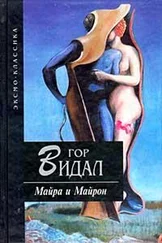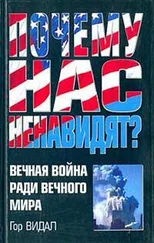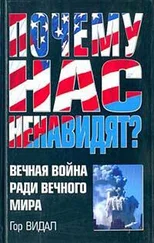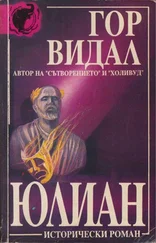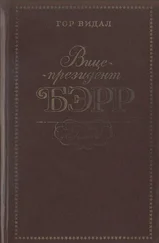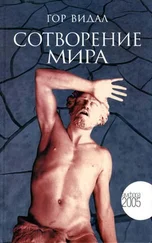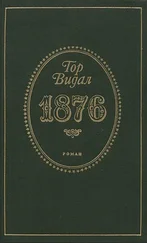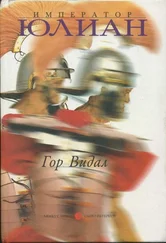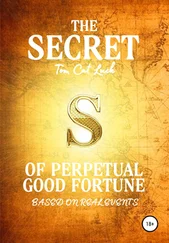Гор Видал - Perpetual War For Perpetual Peace
Здесь есть возможность читать онлайн «Гор Видал - Perpetual War For Perpetual Peace» весь текст электронной книги совершенно бесплатно (целиком полную версию без сокращений). В некоторых случаях можно слушать аудио, скачать через торрент в формате fb2 и присутствует краткое содержание. Жанр: Проза, на английском языке. Описание произведения, (предисловие) а так же отзывы посетителей доступны на портале библиотеки ЛибКат.
- Название:Perpetual War For Perpetual Peace
- Автор:
- Жанр:
- Год:неизвестен
- ISBN:нет данных
- Рейтинг книги:5 / 5. Голосов: 1
-
Избранное:Добавить в избранное
- Отзывы:
-
Ваша оценка:
- 100
- 1
- 2
- 3
- 4
- 5
Perpetual War For Perpetual Peace: краткое содержание, описание и аннотация
Предлагаем к чтению аннотацию, описание, краткое содержание или предисловие (зависит от того, что написал сам автор книги «Perpetual War For Perpetual Peace»). Если вы не нашли необходимую информацию о книге — напишите в комментариях, мы постараемся отыскать её.
Perpetual War For Perpetual Peace — читать онлайн бесплатно полную книгу (весь текст) целиком
Ниже представлен текст книги, разбитый по страницам. Система сохранения места последней прочитанной страницы, позволяет с удобством читать онлайн бесплатно книгу «Perpetual War For Perpetual Peace», без необходимости каждый раз заново искать на чём Вы остановились. Поставьте закладку, и сможете в любой момент перейти на страницу, на которой закончили чтение.
Интервал:
Закладка:
How I Became Interested in Timothy McVeigh and Vice Versa
Once we meditate upon the unremitting violence of the United States against the rest of the world, while relying upon pretexts that, for sheer flimsiness, might have even given Hitler pause when justifying some of his most baroque lies, one begins to understand why Osama struck at us from abroad in the name of 1 billion Muslims whom we have encouraged, through our own preemptive acts of war as well as relentless demonization of them through media, to regard us in — how shall I put it? — less than an amiable light.
In the five years previous to Dark Tuesday, I had got to know the McVeigh case pretty well: in the five decades previous to that, as an enlisted soldier in World War II, as well as a narrator of our imperial history, I think I've always had an up-close view of the death struggle between the American Republic, whose defender I am, and the American Global Empire, our old republic's enemy.
Osama, provoked, struck at us from afar. McVeigh, provoked, struck at us from within on April 19, 1995. Each was enraged by our government's reckless assaults upon other societies as we pursued what a great American historian has called "perpetual war for perpetual peace."
I must admit that, at first, I was not very interested in the bombing of the Murrah Federal Building in Oklahoma City because the media had so quickly and thoroughly attributed this crime to that stock American villain, the lone crazed killer, and acts of madmen are only interesting to the morbidly inclined. Also, wise Henry James had always warned writers against the use of a mad person as central to a narrative on the ground that as he was not morally responsible, there was no true tale to tell.
It was Oklahoma City that first caught my interest. It was such an unlikely place for such an astounding thing to happen. In 1907, my grandfather, Thomas Pryor Gore, brought the state into the Union; he was also elected its first senator and served until 1937. I spent my first ten years in his house in Rock Creek Park, Washington, D.C., reading to him (he was blind from childhood). I was brought up surrounded by the founders of a state that was sometimes known as the belt buckle on the Bible Belt: ironically, my grandfather was an atheist, a well-kept secret back home. Also, at the time of the First World War, Oklahoma was a base, simultaneously, for the Ku Klux Klan and for the Socialist Party, plainly an eclectic gathering place. When the Murrah Building was destroyed I misread the name as Murray, after Alfalfa Bill Murray, the state's first governor who wrote a history of the world without, it was said, ever leaving the state — or cracking a book.
In a desultory way, I began to follow the trial of McVeigh. The font of received wisdom, the New York Times , true to its own great tradition, found him guilty from the start. Perhaps they were, for once, I foolishly thought, acting in good faith. But as the story unfolded, it got more and more incredible. Finally, we were invited to believe that a single slight youth, with possible help from a John Doe never found by the FBI and an elusive, equally slight coconspirator, concocted a fairly complex bomb, single-handedly loaded several thousand pounds of it onto a Ryder truck, drove it to the Murrah Federal Building without blowing himself up (Northern Ireland is littered with the remains of IRA bombers who frequented rough roads with similar bombs), and then detonated it next to a many-windowed building on a bright morning, unseen. This all defied reason.
Once found guilty, however, McVeigh said that he had done it all alone to avenge the government's slaughter of a religious cult at Waco, Texas, in a short statement to the court before sentence was passed, he quoted Supreme Court Justice Brandeis's magnificent dissent in Olmstead . This caught my attention. Brandeis was warning government that it was the teacher of the nation and when government broke laws it set an example that could lead only to imitation and anarchy.
Meanwhile, concerned by the airy way that various departments of our government were tidily clearing away the Bill of Rights, corner by corner, as it were, I wrote the following report for the Vanity Fair issue of November 1998, which McVeigh, by then on Death Row in Colorado, read and then wrote me a letter. Thus began our correspondence, which culminated in his invitation for me to witness, as his guest, his execution by lethal injection. I said I would.
Here is the piece he read in prison.
Shredding the Bill of Rights
Most Americans of a certain age can recall exactly where they were and what they were doing on October 20, 1964, when word came that Herbert Hoover was dead. The heart and mind of a nation stopped. But how many recall when and how they first became aware that one or another of the Bill of Rights had expired? For me, it was sometime in 1960 at a party in Beverly Hills that I got the bad news from the constitutionally cheery actor Gary Grant. He had just flown in from New York. He had, he said, picked up his ticket at an airline counter in that magical old-world airport, Idlewild, whose very name reflected our condition. "There were these lovely girls behind the counter, and they were delighted to help me, or so they said. I signed some autographs. Then I asked one of them for my tickets. Suddenly she was very solemn. 'Do you have any identification?' she asked." (Worldly friends tell me that the "premise" of this story is now the basis of a series of TV commercials for Visa, unseen by me.) I would be exaggerating if I felt the chill in the air that long-ago Beverly Hills evening. Actually, we simply laughed. But I did, for just an instant, wonder if the future had tapped a dainty foot on our mass grave.
Curiously enough, it was Grant again who bore, as lightly as ever, the news that privacy itself hangs by a gossamer thread. "A friend in London rang me this morning," he said. This was June 4, 1963. "Usually we have code names, but this time he forgot. So after he asked for me I said into the receiver, 'All right. St. Louis, off the line. You, too, Milwaukee,' and so on. The operators love listening in. Anyway, after we talked business, he said, 'So what's the latest Hollywood gossip?' And I said, 'Well, Lana Turner is still having an affair with that black baseball pitcher.' One of the operators on the line gave a terrible cry, 'Oh, no!'"
Where Grant's name assured him an admiring audience of telephone operators, the rest of us were usually ignored. That was then. Today, in the all-out, never-to-be-won twin wars on Drugs and Terrorism, 2 million telephone conversations a year are intercepted by law-enforcement officials, As for that famous "workplace" to which so many Americans are assigned by necessity, "the daily abuse of civil liberties. is a national disgrace," according to the American Civil Liberties Union in a 1996 report.
Among the report's findings, between 1990 and 1996, the number of workers under electronic surveillance increased from 8 million per year to more than 30 million. Simultaneously, employers eavesdrop on an estimated 400 million telephone conversations a year — something like 750 a minute. In 1990, major companies subjected 38 percent of their employees to urine tests for drugs. By 1996, more than 70 percent were thus interfered with. Recourse to law has not been encouraging. In fact, the California Supreme Court has upheld the right of public employers to drug-test not only those employees who have been entrusted with flying jet aircraft or protecting our borders from Panamanian imperialism but also those who simply mop the floors. The court also ruled that governments can screen applicants for drugs and alcohol. This was inspired by the actions of the city-state of Glendale, California, which wanted to test all employees due for promotion. Suit was brought against Glendale on the ground that it was violating the Fourth Amendment's protection against "unreasonable searches and seizures." Glendale's policy was upheld by the California Supreme Court, but Justice Stanley Mosk wrote a dissent: "Drug testing represents a significant additional invasion of those applicants' basic rights to privacy and dignity. and the city has not carried its considerable burden of showing that such an invasion is justified in the case of all applicants offered employment."
Читать дальшеИнтервал:
Закладка:
Похожие книги на «Perpetual War For Perpetual Peace»
Представляем Вашему вниманию похожие книги на «Perpetual War For Perpetual Peace» списком для выбора. Мы отобрали схожую по названию и смыслу литературу в надежде предоставить читателям больше вариантов отыскать новые, интересные, ещё непрочитанные произведения.
Обсуждение, отзывы о книге «Perpetual War For Perpetual Peace» и просто собственные мнения читателей. Оставьте ваши комментарии, напишите, что Вы думаете о произведении, его смысле или главных героях. Укажите что конкретно понравилось, а что нет, и почему Вы так считаете.

